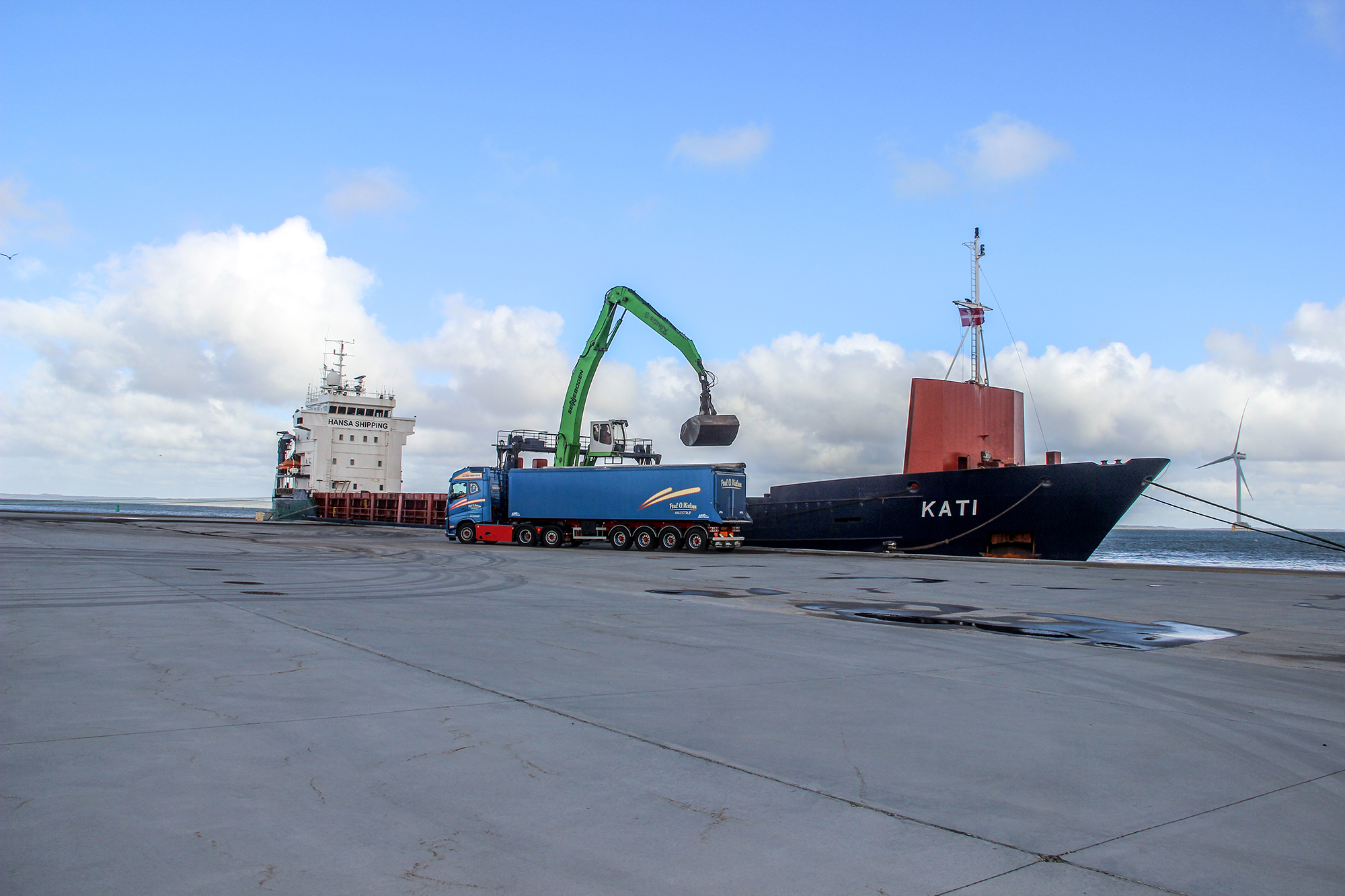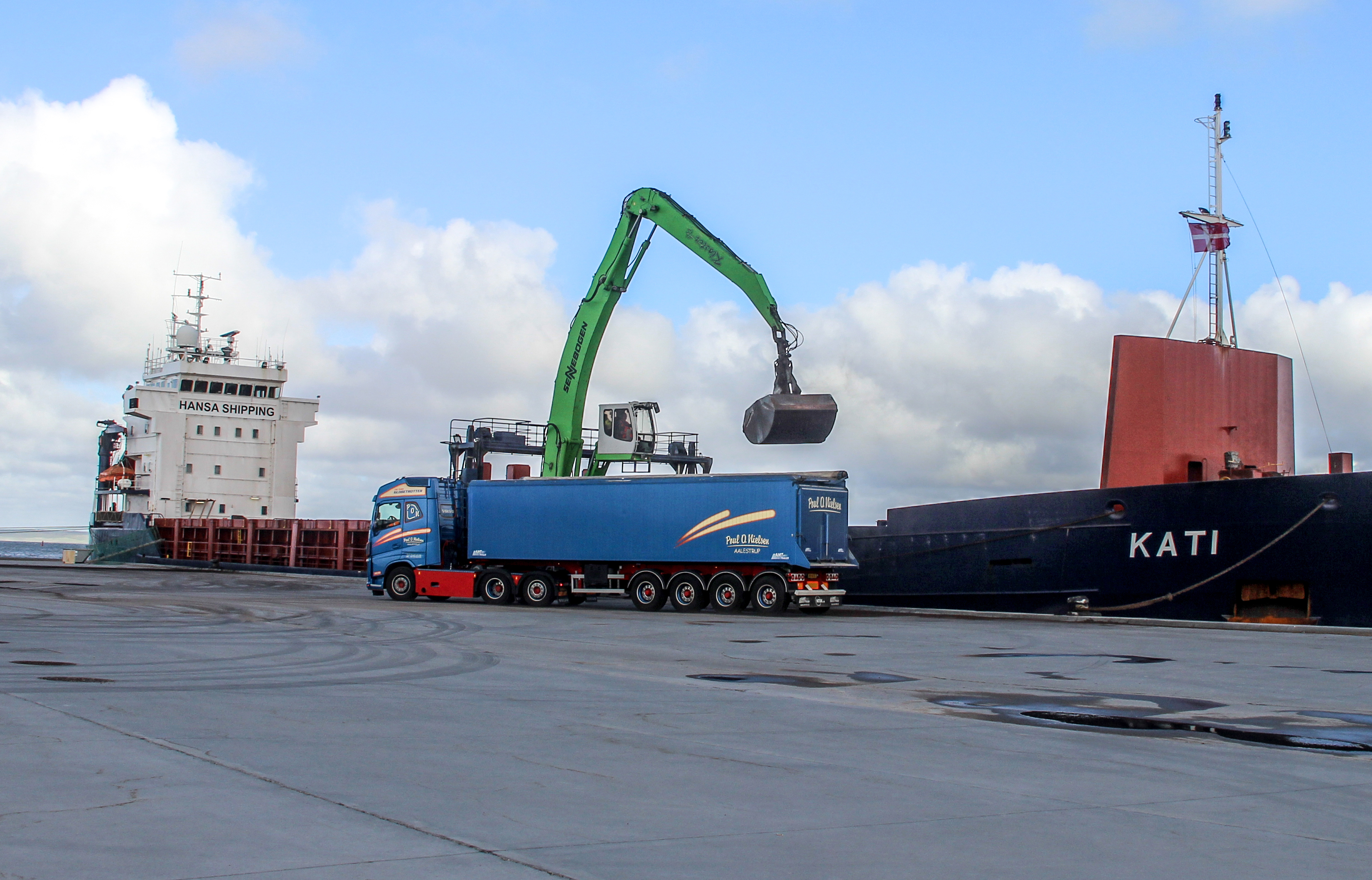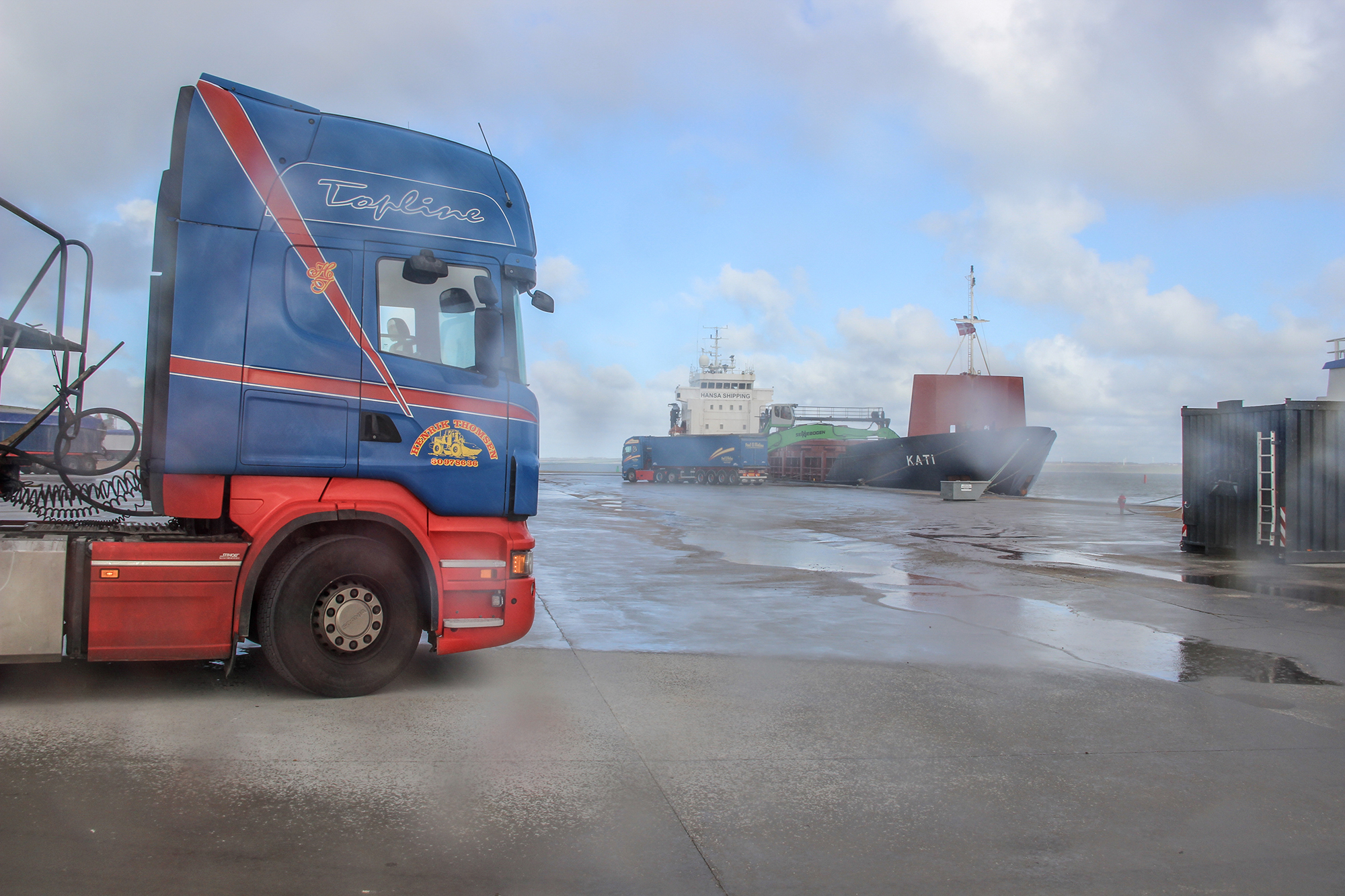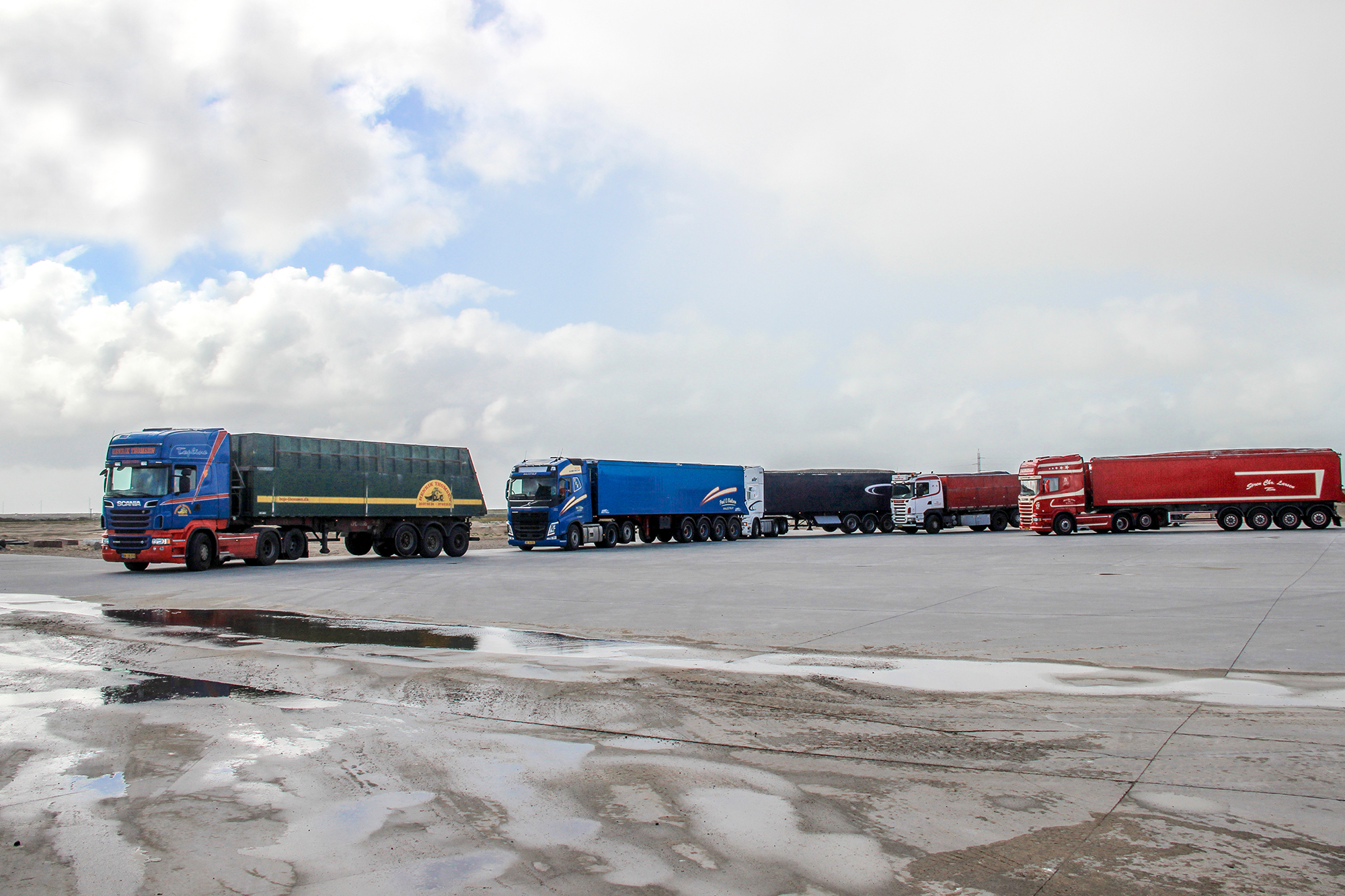
Biomass olive residues
Case story of direct delivery of bulk goods from ship to customer
Olives in Sydhavnen
For the first time ever, olive residues have been transported via the Port of Thyboron. This is the first time that the DLG Group has imported olive residues, and we are proud that it took place at the Port of Thyboron.



Cargo activity at the Port of Thyboron is increasing, and many different types of bulk cargo are entering the commercial port serving mid and west Jutland on the Danish North Sea coast throughout the year. This year we have had the pleasure of hosting a completely new type of bulk cargo – residues from olive oil production, also called olive press cake – which now provides value to Danish biogas plants.
The 4,500 tonnes of dried olive press cake were transported by sea as bulk cargo directly from south Spain to the Port of Thyboron, where trucks were loaded on the quay in Sydhavnen 122 times with the exciting new cargo. It was then transported to DLG Group’s warehouses in north, northwest and east Jutland and out to various biogas plants.
“We constantly weigh up what is the most responsible and economic transport method. The Port of Thyboron has a strategic location in relation to our warehouses. It is therefore an ideal solution to sail the cargo to the port and transport it by road from there,” explains Peter Linde Jensen, Product Manager Biogas, DLG Group.
The large volume was also a major factor in choosing the mode of transport. With a cargo volume of 4,500 tonnes, there are economic advantages in using the sea route for transport.
Sydhavnen at the Port of Thyboron is very easy for trucks to access. The large open quay facilities, with 5,000 m2 of extra concrete adjacent to the quay, made the operation very simple and straightforward.
It was easy for the trucks to drive into position in one long column and drive up to the freighter, Kati, in turn in a steady stream, to be loaded with the dried olive press cake. The whole operation went smoothly and very efficiently, and the 4,500 tonnes of dried olive press cake had been divided into 122 loads and transported in just a few working days.
“It went very smoothly,” says Peter Linde Jensen, Product Manager Biogas, DLG Group.
This is the first time that DLG Group has imported olive press cake. Olive press cake is an exciting residue that can be used for biogas. The green transition is leading to an increasing need for biomass, and alternative biomass resources will be needed in order to keep up with rising demand. Olive press cake is one such example, which is why DLG Group has added this exotic residue to their biogas-related product range.
The dried olive press cake represents an exciting new cargo activity for the port, and we are very pleased that DLG Group has chosen to make use of the Port of Thyboron. It was also pleasant having a few days with the smell of olives carried on the harsh autumn wind, leading one’s thoughts back to the pleasant summer.
Thank you for choosing the Port of Thyboron to transport this exciting bulk cargo DLG Group.
Find out more about the cargo activities at the Port of Thyboron
Published Wednesday, November 28, 2018


